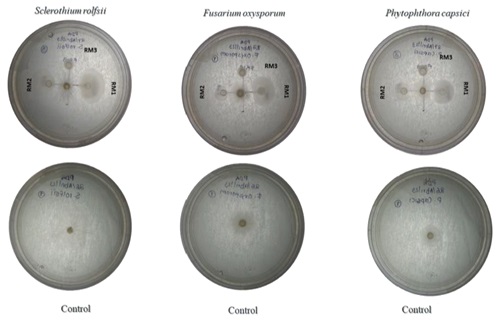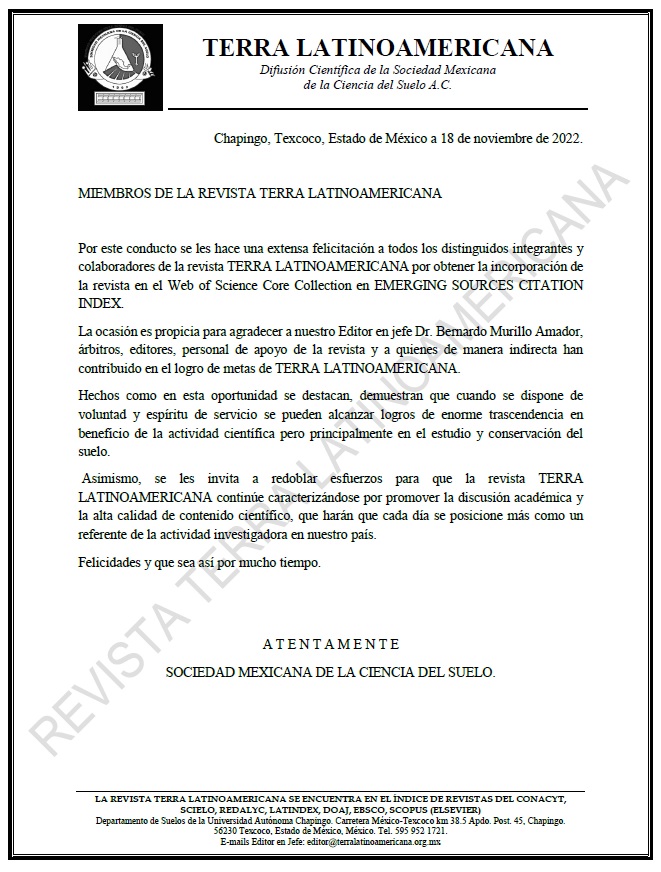Bacterial Endophytes with Antagonistic Potential and Plant Growth Promotion in White Corn (Zea mays L.)
DOI:
https://doi.org/10.28940/terra.v42i.1918Keywords:
antagonism, Bacillus sp., B. cereus, B. subtilis, phosphate solubilizationAbstract
In the state of Sinaloa, Mexico, white corn production is performed under an intensive agriculture model, which implies an indiscriminate use of agrochemicals, inadequate tillage techniques that deteriorate soil quality, groundwater contamination, and currently water scarcity. However, these production systems are gradually being changed to conservation agriculture as a sustainable alternative. Thus, the objective of this study is to molecularly characterize endophytic bacteria isolated from white corn plants (Zea mays L.) and in vitro evaluate their plant growth-promoting capacity and antagonistic activity against phytopathogenic fungi. PIONEER 4032 DEKALB hybrid white corn plants were collected, planting a variety during 2022-2023 fall-winter cycle; endophytic bacteria were isolated from tissue (leaf, stem, and root); colonization diversity showed significant variations in the plant tissue. The isolates were characterized through amplification and 16S rDNA gene sequencing by polymerase chain reaction product, showing association with Firmicutes phyla of Bacillus sp. genus, root endophytic isolates, such as: B. subtilis; B. amyloliquefaciens and B. cereus. The metabolic evaluation shows B. subtilis with relevant capacities for promoting plant growth with high hormone production and phosphate solubilization; in the in vitro antagonism analysis, B. subtilis strain showed the maximum inhibition value of the fungus Sclerotium rolfsii, (87.09%). Bacillus genus is used in understanding metabolic processes and antagonism against pathogens that attack crops of economic importance. Thus, it is important to mention that few reports exist of Bacillus species in white corn grown in the municipality of Guasave, Sinaloa. These results are the basis for establishing in planta bioassays with Bacillus strains isolated from white corn in support of a sustainable agriculture model.
Downloads
Publication Facts
Reviewer profiles N/A
Author statements
- Academic society
- Terra Latinoamericana
- Publisher
- Mexican Society of Soil Science, C.A.

















